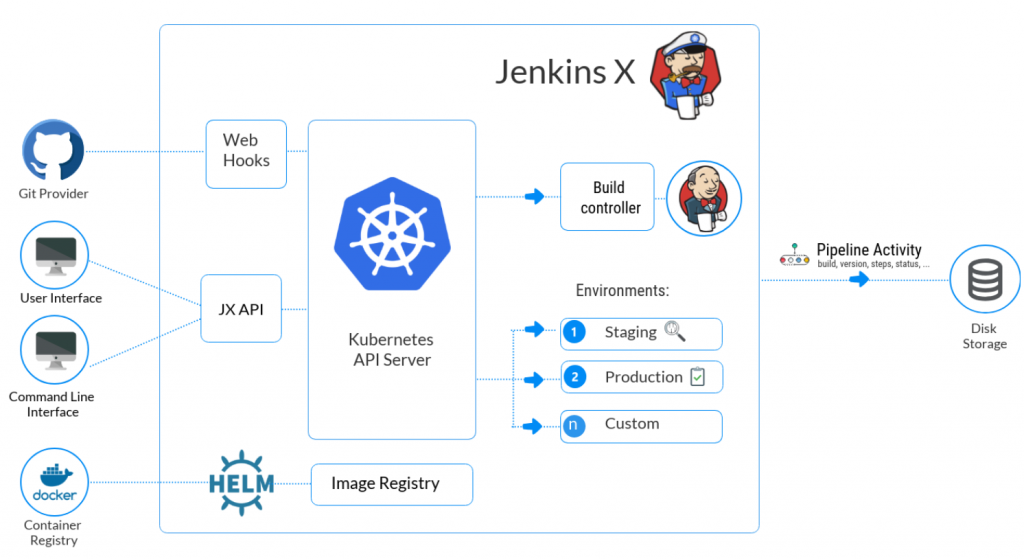
Jenkins X is an open-source automation platform that helps teams automate the development, testing, and deployment of cloud-native applications. It is based on Jenkins, an open-source automation server, and Tekton, a cloud-native pipeline orchestration system.
Jenkins X provides a number of features that make it a powerful tool for automating cloud-native applications, including:
- Continuous integration and continuous delivery (CI/CD): Jenkins X can automate the entire CI/CD pipeline, from building and testing code to deploying it to production.
- GitOps: Jenkins X uses GitOps to manage its configuration. This means that all of the configuration for Jenkins X is stored in a Git repository, which makes it easy to track changes and collaborate with others.
- Pre-built pipelines: Jenkins X comes with a number of pre-built pipelines that can be used to automate common tasks, such as building and deploying Java applications.
- Out-of-the-box integrations: Jenkins X integrates with a number of popular cloud-native tools, such as Kubernetes, Docker, and Helm.
Jenkins X is a powerful tool that can help teams automate the development, testing, and deployment of cloud-native applications. It is a good choice for teams that are looking to adopt a CI/CD pipeline and/or move to the cloud.
Here are some of the benefits of using Jenkins X:
- Reduced time to market: Jenkins X can help teams automate the CI/CD pipeline, which can significantly reduce the time it takes to get new features to market.
- Improved quality: Jenkins X can help teams improve the quality of their code by automating the testing process.
- Increased collaboration: Jenkins X makes it easy for teams to collaborate on code and deployments.
- Lower costs: Jenkins X can help teams lower the costs of development and deployment by automating the process.
I’m a DevOps/SRE/DevSecOps/Cloud Expert passionate about sharing knowledge and experiences. I am working at Cotocus. I blog tech insights at DevOps School, travel stories at Holiday Landmark, stock market tips at Stocks Mantra, health and fitness guidance at My Medic Plus, product reviews at I reviewed , and SEO strategies at Wizbrand.
Please find my social handles as below;
Rajesh Kumar Personal Website
Rajesh Kumar at YOUTUBE
Rajesh Kumar at INSTAGRAM
Rajesh Kumar at X
Rajesh Kumar at FACEBOOK
Rajesh Kumar at LINKEDIN
Rajesh Kumar at PINTEREST
Rajesh Kumar at QUORA
Rajesh Kumar at WIZBRAND

 Starting: 1st of Every Month
Starting: 1st of Every Month  +91 8409492687
+91 8409492687  Contact@DevOpsSchool.com
Contact@DevOpsSchool.com
